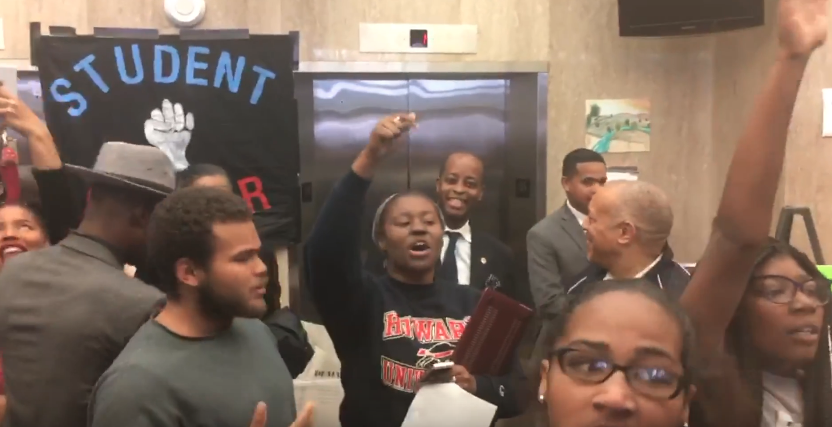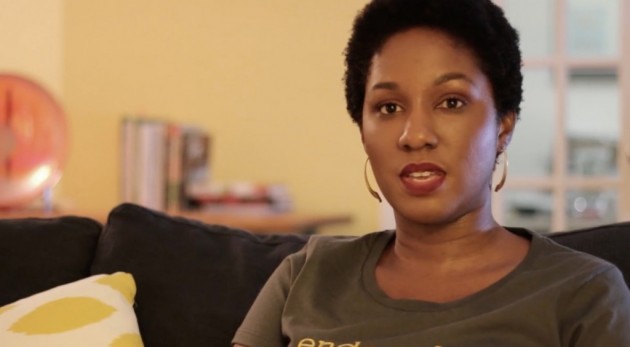NNPA Washington Correspondent
WASHINGTON (NNPA) – The Bush Administration’stop Blacks – Secretary of State Colin Powell and NationalSecurity Advisor Condoleezza Rice – will cast long shadowsover the Republican National Convention in New York this week– but not long enough to win Black votes, predicts the lastBlack Republican to serve in the United States Senate.
“I applaud Rice and Powell’s appointments and I thinkmost African-Americans applaud them as well. But when you’retalking bread-and-butter issues, when you’re talking jobs andhealth care, you have to balance that. What are they doing for themillions of African-Americans who are suffering?” asks formerMassachusetts Sen. Ed Brooke, the first Black elected to the U. S.Senate in the 20th Century. “From the tax programs, the war,and the disproportionate number of African-Americans going to war,when you look at it that way, they can’t expect to receiveAfrican-American votes just because of a few Blackappointments.”
Brooke, who remains loyal to the Republican Party, says he willnot attend the convention because he is not a delegate and is nolonger involved in Massachusetts politics. He says his decision notto attend the convention is not a protest. Yet, his disappointmentis evident.
“The Republican Party has not done what it should have doneto attract African- Americans,” he says. “The party ofLincoln is not the party of Lincoln today. Unfortunately,African-Americans still view the Republican Party as opposed to theissues that are most important to African-Americans.”
Brooke, who served in the Senate from 1967 to 1979, comes from anera when progressive Republicans maintained a strong influence overthe direction of the party, not just in obtaining Blackappointments.
Until Franklin D. Roosevelt’s “New Deal” from1933-1938, most Blacks were registered Republicans. As late as theearly 1960s, it was not unusual for Republican candidates to get 30percent of the Black vote, particularly moderate Republicans suchas New York City Mayor John V. Lindsay and Connecticut Sen. LowellWeicker.
A major turning point for the party and its relationship withAfrican-Americans came when Republicans chose Sen. Barry Goldwater,an archconservative from Arizona, as its presidential candidate in1964.
Goldwater ran on a states’ right platform, an overt attemptto court Southern segregationists. Only 6 percent of Blacks votedfor Goldwater.
By contrast, 94 percent of African-Americans supported incumbentDemocratic President Lyndon B. Johnson, who was elected in alandslide.
Since that time, Republicans have never received more than 15percent of the Black vote. In 2000, George W. Bush received only 8percent of the African-American vote, the weakest support a GOPnominee has received since Goldwater. The more the GOP has shiftedto the right, the less support it receives fromAfrican-Americans.
“How sad it is that there no longer is that social justicewing of the Republican Party,” says Ralph Neas, president ofPeople for the American Way and former chief counsel to Brooke.”That wing of the party no longer exists.”
It’s getting steadily worse, he says.
“Even into the early 90s you could still get a third of theRepublicans in the U. S. Senate and in the U. S. House ofRepresentatives to support social justice issues, including civilrights,” says Neas. “But in 1994 [the year Republicanstook over control of both the House and Senate and launched their‘Contract with America’ campaign], that RepublicanParty that I used to be a part of ended, and the right wing of theparty now controls it. I’m talking about the leadership ofthe House, the leadership of the United States Senate, theleadership of the White House. We now have the most Right-wingadministration in modern times. This administration is doingeverything possible to undermine – if not destroy – the Edward W.Brooks of the world, those Republican moderates and liberals whowere such an important part of our history and civil rights historyover the last 40 or 50 years.”
Neas says President Bush’s choice of judicial nominees isjust one issue that leads some to view the Republican NationalConvention as a revival of “obstructionism”.
“Instead of seeking to nominate well-qualified, mainstreamcandidates who satisfy the important criteria for confirmation tothe federal judiciary, the President, time and time again, hasnominated individuals with extreme, right-wing legal views who posea threat to the rights and freedoms that Americans holddear,” Neas states.
Bruce Ransom, professor of political science at Clemson Universityin South Carolina, says the judicial nominations are part of alarger problem.
“Primarily, there’s a notion that views Republicanconservatism as akin to racism or anti-Black,” heobserves.
Colin Powell, the nation’s first Black secretary of state,has been applauded by African-Americans for consistently supportingaffirmative action.
Although Condoleezza Rice supports affirmative action but agreedwith President Bush’s decision to oppose two affirmative actionprograms at the University of Michigan, she is warmly received byBlacks and has been honored by the NAACP, the National Urban Leagueand other Black groups.
While they may get may be personally popular, analysts say it willtake far more than the popularity of Bush appointees to swayAfrican-American voters.
It’s not just about skin color, says David Covin, professorof government and ethnic studies at California State University– Sacramento.
“Black people are extremely sensitive to how issues affectthem collectively and Black people as a group tend to be moreaffected than White people as a group,” says Covin, presidentof the National Conference of Black Political Scientists.”The fact that Colin Powell and Condoleezza were selecteddoesn’t matter.”
If the Republican Party ever expects to attract Black voters insignificant numbers, it must adopt different policies, according topolitical scientists.
“When you see President Bush arguing against affirmativeaction with the Supreme Court on Martin Luther King’sbirthday, symbolically, that sends a message to African-Americansabout their outreach to the Black community,” says DesireePedescleaux, associate professor of political science at SpelmanCollege in Atlanta. “It will take careful planning. It willtake years of work.”
Covin agrees.
“It takes a track record. They had a great track record withBlack voters up to the 1932 election. They were not only the partyof Lincoln but of the 13th, 14th, and 15th amendments.”
Politics is more than about winning an election, explains Neas.
“It would certainly be good for the country if they would bemore inclusive and there are always going to be areas where you dowant a variety of views,” he says. “This is what thiselection is all about, which way we’re going to go as acountry.”



